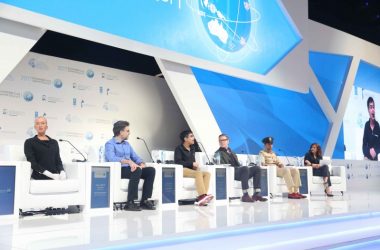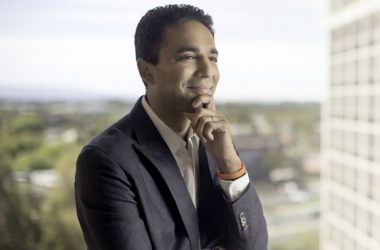Bottom Line
– Non-IT and management skills are fundamental for career breakthrough
– EMBA programmes gather collective wisdom and experience in a single classroom
– Executive coaching develops an individual who’s part of an organization
– Mentoring brings an independent, experienced external voice
IT leaders in Hong Kong are in better position than their Asian peers to drive growth and further advancement in their own careers, according to experts. But the path requires new skills and new learning strategies.
A global study commissioned by CA Technologies indicates that organisations in Hong Kong have the highest recognition of IT in Asia Pacific. The study interviewed 685 CIOs from organisations with over 500 employees and found 50% of the Hong Kong respondents said their management views IT as fundamental to the organisations’ success–the highest rate in the Asia-Pacific region.
This higher level of digital literacy among senior executives in Hong Kong means local IT leaders can leverage their position to bring more strategic impact to the organisation and move up the corporate ladder.
Seeking a business role
Moving into a business role is considered a major breakthrough for many IT practitioners. But it may not be suitable for everyone
YB Yeung, former regional CIO and Assistant General Manager at HSBC, is a local IT leader who worked in both IT and senior business positions at the bank. He said IT personnel seeking to upgrade their career should identify the qualities and skills required before planning a transition towards a business role. Currently an adjunct professor at City University Hong Kong and mentor of CIO Connect’s Next Generation Programme, Yeung said major qualities required include understanding business operations and decision-making processes.
“It’s very important to understand how business works–like how to meet business quotas and how marketing strategies are planned,” he said. “For example, starting a credit card business may cost half a million, but how is that budget allocated between marketing, operation and other business functions? It’s something most IT executives aren’t familiar with.”
People skills are important for all IT executives as they are no longer managing systems or technologies but people. But more important are inter-personal “soft skills.” Yeung said a business roles require working with a greater diversity of people, both within the company and externally with different non-tech vendors, partners and customers.
With non-IT and management skills as the fundamentals for moving up the corporate ladder, more leadership development programmes are available for IT leaders. We look at some of the programmes available and how they help local IT professionals seeking the next rung on the ladder.
EMBA: Achieve a personal breakthrough
Like many executives, Raymond Ngai, head of IT infrastructure and operation services at the Hong Kong Jockey Club (HKJC), chose to pursue an executive MBA (EMBA) programme to achieve a breakthrough. As an alumnus of the Kellogg-HKUST EMBA 2005-2006, Ngai found the experience not only educational, but inspiring.
“If I had to use one word to describe what I’ve gained from the programme, it would be ‘confidence’,” noted Ngai. “The programme is particularly useful for me in making business decisions confidently.”
Decision-making is a critical process for all senior executives. As a programme for executives across all business functions, regardless of marketing, finance, IT or operations, the EMBA programme provides a framework to make this process a science rather than art. As a science, decisions are made after considering all the available options and after analysing pros and con from various perspectives. “A majority of the programme is about applying this framework to make efficient decisions in different scenarios,” added Ngai.
Applying theories in the real world
Ngai found theories and frameworks from the EMBA programme were particularly helpful when HKJC’s IT group was going through a transformation. By applying organisational behaviour and structure theory, he was able to assist the consolidation of two departments, IT infrastructure services and operation services, efficiently.
“Deciding to merge them either by functions or by technical expertise was one of the major decisions I had to make,” he said.
By applying the decision-making framework and understanding the organisation structure models, he was equipped with tools to better understand the impact of different options.
“If it is structured by technical expertise, the pool of technicians becomes more centralised–this is a structure that would work for organisations that are more centralised,” he said. “This is the kind of theory I learned in the EBMA programme that I could bring back to the organisation and apply.”
Collective wisdom
In addition to theories and methodologies, Ngai finds interaction with his peers–and the relationships built through these interactions–most valuable of all.
As the EMBA programme is designed senior management and executives, only students with senior management experience are admitted, creating a pool of knowledge and experience. Putting a group of elite leaders in a classroom creates an environment that breaks down the business-agenda boundaries each individual invariably brings.
“Within the programme, we were all classmates, instead of potential business partners or competitors,” he said. “The environment encouraged us to freely share our experiences, both successes and failures. Since all of us come from major corporations, these cases are often sensitive. But as classmates, the priority is to learn from each other, thus we were more comfortable to share. That’s the number one benefit.”
An experience that lasts
Ngai said that the relationships, insights and knowledge acquired from the EMBA programme has a lasting and direct impact towards an individual. “The EMBA programme is tailored to enhance an individual. It provides multiple paths and options for an individual to achieve breakthrough to one’s career,” he said.
Since most students in the programme hold senior management positions, few are motivated by a promotion within the organisation, but rather to seek new heights for themselves or for their organisations. “The programme has taken me to the next level of my personal journey, where I can explore opportunities I would never have thought possible before,” said Ngai.
The return for the organisation, however, very much depends on the individual. Most corporate training programmes are based on leadership development geared towards the organisation’s needs, while an EMBA programme may not bring straightforward benefits to the organisation.
“Although the EMBA programme requires company sponsorship, contribution to the business depends on whether the individual’s goals match with the corporate direction,” he said. “It can be a challenge for the organisations to maximise an individual’s learning experience, but the longer the organisation can retain the individual, the more beneficial it is.”
Executive coaching–personal experience, corporate success
To provide development for senior executives that match with corporate strategy, more organisations are sponsoring coaching programmes.
Business coaching started to gain popularity when Google CEO Eric Schmidt publicly shared his executive coaching experience. The idea is also becoming acceptable in Hong Kong. According to a survey conducted by recruitment firm Robert Half, among the 500-plus Hong Kong respondents, 88% indicated that career coaching helps improve their job performance.
“Executive coaching was primarily among the MNCs, but it’s now getting wider acceptance both in Hong Kong and China by domestic companies,” said Garry Willinge, a former IBM Hong Kong executive, who has been an executive coach for six years. His practice covers across Asia and has been coaching C-level and senior executives in various industries.
Different from an EMBA programme, an executive coaching is a customised programme with a higher participation from the organisation, said Willinge, who runs his own coaching practice, but also works as an associate for other executive training organisations like the Australia-based Institute of Executive Coaching and Leadership (IECL) and Hong Kong-based Transcend. The programme aims to develop an individual that is part of an organisation, and it is important that the coaching goals match with the organisation’s direction.
“I am not a life-coach, I don’t coach without an identified executive sponsor,” he said. “In a coaching programme, it is critical to sustain what we’ve achieved during the period and the individual will need the company’s support to sustain it.”
In a typical engagement, the organisation’s sponsor is involved only at the beginning to confirm the coaching goals, at the mid-point for review, and at the end for a final discussion on achievements and continuation. These coaching goals often include helping an individual to overcome their unique personal or business challenges, or to prepare them for a promotion.
A personal and structured experience
Despite a higher participation from the organisation, an executive coaching programme remains a personal experience between the coach and the individual.
“As a coach, I want to understand the person well as there could be hidden topics that hinder an individual from achieving his or her full potential,” Willinge added. “Many personal issues will be shared, the confidentiality and the relationship are very important.”
Willinge said coaching is best performed by external resources which bring experiences from across different industries and also allow the individual to feel comfortable sharing personal information.
A typical executive coaching engagement is a 12-month programme with 10-12 monthly sections. In between sections there are self-observation exercises: the individual writes in a journal to record the learning experience and to review the outcome. Willinge noted the self-observation exercise is critical as it is a tool to ensure the coaching advice, which is designed specifically for the organisation environment, is being applied.
“I’d say the most important part of this programme is on-the-ground training,” he said. “My philosophy is that in an executive coaching programme, 70% is on-the-job exercises, 15% coaching and 15% education or training.”
Willinge explained that unlike other off-site leadership development programming, executive coaching focuses on applying skills in real-world business scenarios and measuring achievements along the way. Both the individual and the sponsors review progress and refine targets throughout the programme.
“We refine or adjust targets along the process,” he said, “but we never lose sight of the end-goals.”
Adoption among CIOs
Although executive coaching is gaining wider adoption, Willinge said it has yet to catch on with local IT executives.
“I focus on coaching senior executives like CEOs, CFOs and CMOs, but I’ve only coached one CIO so far and that person is in Australia,” he said.
Willing pinpoints technical focus as a likely cause. Most senior executives at MNCs or large corporations take up different roles, ranging from finance, marketing and operations, as they move up the corporate ladder. CIOs tend to develop a technical career and are more likely to switch CIO jobs between different companies than different roles within a company.
Nevertheless, Willinge noted the job of a CIO, like any other C-level executives, is demanding and challenging. “Coaching is an important and liberating experience,
because things that you don’t realise about yourself and your career emerge,” he said. “CIOs should be going through this programme with the same intensity as other C-level peers.”
Training for IT management
In addition to training for general senior executives from EMBA programmes and customised engagement through executive coaching, there are also programmes in Hong Kong that brings different value–an IT-oriented leadership development programme.
Organised by the UK-based CIO networking community CIO Connect, the Next Generation Programme provides development for a group of IT middle management to enhance their leadership competency in order to bring transformation in their respective organisations
The programme was first brought to Hong Kong in 2010 as an internal training programme for the Hong Kong Jockey Club. Since then the programme has been extended to include CLP and the Hospital Authority. The programme enters its third year in Q3 2012 and continues to focus on training leaders to deal with IT-specific challenges in Hong Kong.
Bring assertiveness into ambiguity
According to Alistair Russell, advisory practice director at CIO Connect, the programme covers common challenges among IT leaders: 1) Setting IT directions and strategies; 2) Influencing stakeholders; 3) Managing delivery and demonstrating value; 4) Developing personal strength for career advancement.
These elements are being covered through a professional learning tool called reflective practice. The aim is to build a student’s ability to handle ambiguity with assertiveness. “Students are not just learning the tools, but also understanding the fundamentals of why and how it works, in order to apply the theory in different scenarios,” said Russell, who brought the programme from the UK to Hong Kong.
Four-full day workshops are arranged throughout the 12-month programme, providing ample time in between the workshops for students to apply and translate the abstract ideas into the real working environment.
He said that unlike an EMBA programme, the programme is not for CV-building. And unlike coaching, which is one-on-one training, the programme also allows students to enjoy a collective learning experience.
“Part of good leadership is mastering the interplay between confidence and judgment,” said Russell. “A collective learning experience allows students to not only learn about the theory, but also understands how it is applied among other students in different environments, enhancing knowledge and confidence to make decisions and judgments.”
Mentors–external voices
Another major and distinctive element within the Next Generation Programme is mentorship, which provides one-on-one mentoring with retired IT leaders in Hong Kong.
“The mentors provide an experienced and independent external voice for the students,” said Les Hales, managing director of CIO Connect, who is also one of the mentors in the programme. He noted without a formal business relationship with the mentor, students can also share their issues more comfortably.
Among the mentors is YB Yeung, professor at City University and former HSBC executive. Spending two hours with individual mentees every few months throughout the programme, Yeung found the experience mutually rewarding.
“Mentorship provides a two-way exchange between the mentor and the protégé,” said Yeung. “It allows me to understand the challenges and corporate cultures among different organisations, which I find it very interesting.”
Yeung noted that challenges for most new IT leaders involve managing people and inter-departmental relationships. By sharing his previous experiences in dealing with similar situations and the philosophy of management, students can learn new perspectives and solutions.
Other mentors within the programme include Patty Wong, former CIO at Hutchison Ports; Raymond Wong, the previous assistant director of Immigration Department and Tom Sheppard, former director of IT at Cable and Wireless/Hong Kong Telecom.
“This (programme) is all about building skills through the knowledge transfer between those involved,” said Hales. “The relationships formed extend beyond the formal end of the project.”






